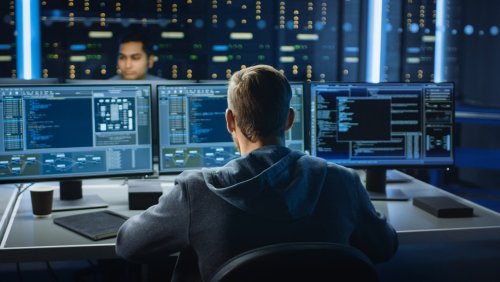-
Volunteering positions
-

Build framework maintainer
Position: Framework maintainerNumber of places: 16Applicants: 6
-
-
Chat | Social Media
#armbian at
irc.libera.chat or irc.oftc.net
Matrix or Discord
Mastodon | 𝕏 -
Popular Now
-
Activity Stream
-
807
How to install armbian in h618?
I don't know if this is known already and if its off topic for this thread. I did a search for moonlight in the allwinner section and nothing came up so I'm sticking it here I got moonlight running on H618 (actually it might be a H616....) box with no issues at all. Streamed a game from my main PC (with sunshine) at 1080p and it ran great. Makes for a cheap Steamlink alternative. I just followed the instructions here, It does mention v4l2 so maybe the v4l2request patch is required for it to work. There is an Embedded version that might work if you don't have v4l2 support. -
3
How you can help test upcoming Armbian 26.02 images?
I download Armbian_26.2.1_Odroidm2_noble_current_6.18.8_gnome_desktop.img.xz and burnt to a new SD card. Tested: Install OK Initial startup to desktop OK shutdown OK boot OK HDMI OK HDMI audio FAILED only dummy sound device Wifi via PCI M-key to E-key adapter Intel Wifi 6 AX200 OK USB-2 OK multiple devices including HUB USB-3 OK thumb drive USB-C FAILED nil buses detected or exposed I have managed to add a user device tree overlay to expose the USB-C port in non OTG mode and get some USB-C devices working. A USB-C thumb drive was consistent. But I only managed to connect my Pixel 8a successfully once at 480m speed. -
123
Gaming experience with Orange Pi 5 (RK3588) on Armbian
Armbian 25.11.2 Noble XFCE (BSP Kernel: 6.1.115) + PanVk - mesa 26.0 (https://launchpad.net/~ernstp/+archive/ubuntu/mesaaco) + Box64 arm64 v0.4.1 652da4fbc (https://ryanfortner.github.io/box64-debs/) + proton-10.0-4-amd64-wow64 (https://github.com/Kron4ek/Wine-Builds/releases/download/proton-10.0-4/wine-proton-10.0-4-amd64-wow64.tar.xz) + DXVK-stripped v1.10.3 ~50fps@720p (low settings) box64 environment variables: Injustice Gods Among Us Ultimate Edition -
321
Armbian for H313 X96-Q LPDDR3 TV-Box
@Kevin su Armbian uses one kernel config for both server and desktop images. You could compile your own server image and enable this option. I can help you with build errors. SBCs often have relatively weak single-core performance compared to x86 servers. Full preemption prevents a single long-running kernel task from causing noticeable "stutter" in network responses or shell interaction. -
3
How you can help test upcoming Armbian 26.02 images?
I am currently on the community Odroid M2 CURRENT (6.18) (not edge 6.19) rolling release. Does this differ significantly enough from the images provided here: https://fi.mirror.armbian.de/incoming/igorpecovnik/ that I should download afresh and re-install before submitting any test results? Reporting! Where? (Every other section 1 - 7 had a necessary link) Much appreciated in advance. Willing to help or donate a M2 board if necessary.
-
-
Member Statistics





